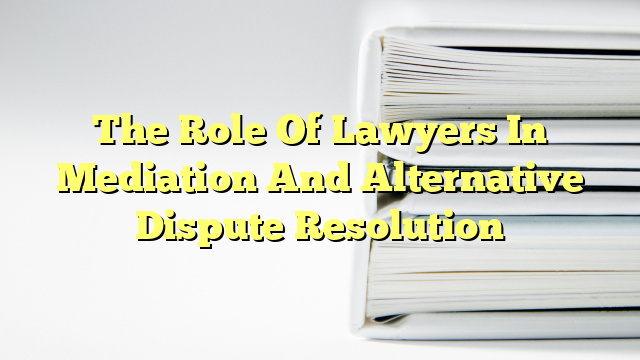Table of Contents
- Introduction
- What is Mediation and Alternative Dispute Resolution (ADR)?
- The Role of a Paralegal in ADR Negotiation and Mediation
- The Process of Mediation as an Alternative Dispute Resolution Strategy
- Does Alternative Dispute Resolution Include Mediation?
- Conclusion
Introduction
Mediation and alternative dispute resolution (ADR) are two processes that are becoming increasingly popular for settling legal disputes. Those who are involved in either process can benefit from the help of experienced lawyers. Lawyers have the knowledge and expertise to ensure that both parties are treated fairly and that their rights are fully protected.
What is Mediation and Alternative Dispute Resolution (ADR)?
Mediation and alternative dispute resolution (ADR) are two different methods of resolving disputes without going to court. In mediation, an impartial third-party mediator helps the two parties in the dispute come to an agreement on their own. The mediator does not make decisions for them, but instead guides them and assists them in their negotiations. ADR, on the other hand, is a process in which the parties present their case to a neutral third party, who then makes a decision about the outcome of the dispute. This decision is legally binding and can be enforced by the courts.
The Role of a Paralegal in ADR Negotiation and Mediation
Lawyers can play an important role in both mediation and ADR. They can provide legal advice and counsel to those involved in the dispute and can help guide the negotiation or mediation process. Lawyers can also help prepare the necessary paperwork and documentation for the case, and can be a valuable resource in helping the parties understand the legal aspects of the dispute.
Paralegals can also be a great asset in ADR negotiations and mediation. Paralegals are knowledgeable about the legal process and can help to ensure that the dispute is resolved in an efficient and cost-effective manner. Paralegals can also help to identify potential issues and can assist in the preparation of the necessary documents.
The Process of Mediation as an Alternative Dispute Resolution Strategy
The process of mediation typically involves a neutral third-party mediator who helps the two parties in the dispute come to an agreement on their own. The mediator does not make decisions for them, but instead helps them to understand each other’s positions and encourages them to work together to reach a mutually acceptable solution.
The mediator helps the parties to identify potential areas of agreement, assists them in their negotiations, and helps them to come to an agreement that is beneficial to both parties. Mediation is an informal process, so it does not involve a judge or a court. It is usually a less expensive and faster process than going to court, and can save both parties time and money.
Does Alternative Dispute Resolution Include Mediation?
Yes, mediation is a form of alternative dispute resolution. Other forms of alternative dispute resolution include arbitration, collaborative law, and negotiation. All of these processes involve an impartial third party who helps the parties reach an agreement. However, mediation is typically the most informal of these processes and does not involve a judge or a court.
Conclusion
Lawyers can play an important role in both mediation and alternative dispute resolution. They can provide legal advice and counsel to those involved in the dispute and can help guide the negotiation or mediation process. Additionally, paralegals can be a great asset in these processes, as they are knowledgeable about the legal process and can help to ensure that the dispute is resolved in an efficient and cost-effective manner.


Lawyers are not essential to alternative dispute resolution – it is merely an additional tool they can use to mediate.